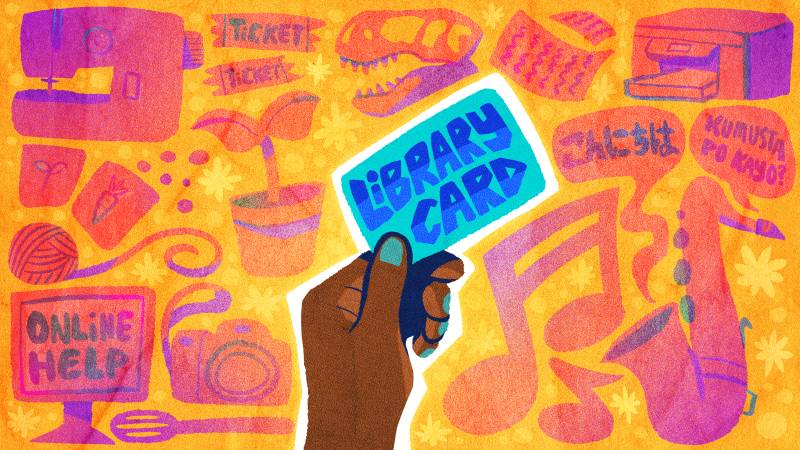Akhila Bhat, branch manager at Harris County Public Library in Katy, Texas, says her library system has a seed library. “Patrons can pick up seeds to start a garden and drop off seeds for others to take home and plant.”
Meanwhile, libraries like the Providence Public Library in Rhode Island have tools you can check out. That includes a cordless drill, safety goggles and a laser level.
2. Reserve free tickets to local museums and attractions
In some places, you can get free or discounted tickets to local attractions in your city or town. The Nashville Public Library, for example, offers free passes to the Cheekwood Estate and Gardens (saving patrons $29 in admission fees), the Country Music Hall of Fame (saving about $28) and the National Museum of African American Music (saving about $27). And library card holders in California can gain free entry to over 200 state parks, saving patrons $20 in entry fees.
3. Print out your documents at a discount
You can use the computers to print out documents like plane tickets, concert tickets or shipping labels. There’s usually a small fee, but it’s often cheaper than printing at an office supply store or a shipping center, says Threets. For example, it costs 10 cents to print a page in black and white at the Brooklyn Public Library in New York, and 23 cents at Fedex.
4. Get free help with homework and standardized tests
Your library card may grant you access to free online help from expert tutors or Tutor.com, which offers live one-on-one homework help for students in K-12 and higher education. It’s a sweet deal considering that hourly rates for a private tutor can range from $25-80 an hour.
If you’re preparing for college, check out whether your local branch has resources for standardized tests like the SAT or ACT. Broward County Library in Florida, for example, has a free 10-hour test prep workshop for high school students that can cost hundreds of dollars elsewhere. Aspiring graduate students can find resources for exams such as the GRE, LSAT, MCAT and MAT.
Librarians can help with school projects too. If you need to research something, they can identify relevant books or order them from other branches for you. Bhat says a lot of kids come in looking for help with biographies.
5. Take free fitness, hobby and language classes
Some libraries often offer fun, free programming you’d pay money for elsewhere. Queens Public Library in New York offers workout classes ranging from yoga to tai chi to Zumba, saving patrons potentially hundreds of dollars in monthly class fees at a fitness studio.
Libraries can also help you find a new hobby. You can join a knitting club, learn photography or take a class with a naturalist. Some locations will even let patrons borrow the necessary gear. Libraries in Florida and Philadelphia, for example, have “birding backpacks” that come equipped with items for birdwatching, like binoculars and field guides to help identify local birds.
And many libraries grant patrons access to online language learning resources such as Mango Languages, a service that has courses for over 70 languages.
6. Attend free concerts and performances
Save money on live music by checking out what your local branch has to offer. The New York Public Library’s performance art space, for example, has upcoming concerts featuring a choir and a quartet. And people can watch a classical guitarist or a harpist perform at different libraries in Los Angeles County.
7. Access free social services
In addition to recreation and entertainment, many libraries in the U.S. offer programs to support the community. People who need help finding a job can take computer literacy courses and get assistance with applications and interview prep. Immigrants can take English as a Second Language (ESL) classes and classes to prepare them for their U.S. citizenship exam.
Libraries also provide resources for practical matters. Around tax time, check if there are volunteer tax experts available to give you advice and help you file for free. At Threet’s library, patrons can book time with a lawyer if they need legal advice. “We have volunteer lawyers who will meet with people for 15 to 20 minutes at a time on a monthly basis,” he says.
Johnson says library resources like these aim to level the playing field. “The hope is that people use our services to educate and inform themselves, and gain wisdom about any topic under the sun.”
The audio was edited by Meghan Keane and Sylvie Douglis. The digital story was edited by Malaka Gharib. The visual producer is Kaz Fantone.



9(MDAxOTAwOTE4MDEyMTkxMDAzNjczZDljZA004))